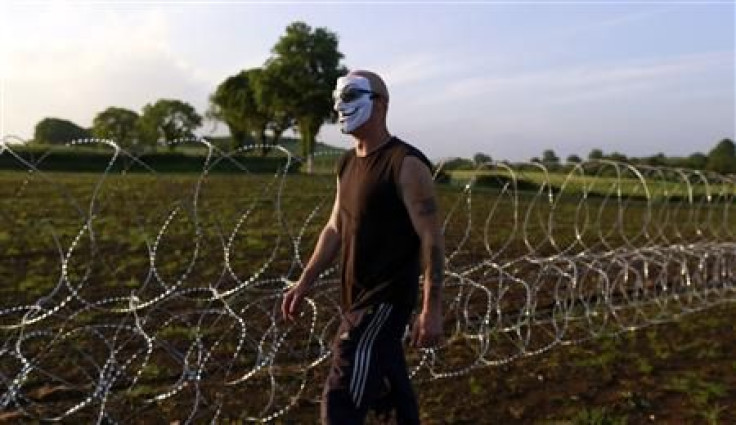Anti-Capitalism Protesters And Human Rights Activists Briefly Breach Security Perimeter At G-8 Summit

A group of protesters briefly breached the security perimeter around the G-8 summit venue at Lough Erne in Northern Ireland on Monday, but dispersed soon after riot police warned them against passing the next barrier.
The group, which was part of a larger rally of around 1,000 environmentalists and rights activists, climbed over barbed security wire and entered a field brandishing banners and flags, while the rest of the demonstrators stopped as originally planned when they reached the perimeter, Reuters reported.
The demonstration was noisy, but peaceful and included people who were protesting against capitalism, tax evasion and poverty, BBC reported.
George Tzamouranis, 48, and living in Belfast, who spoke to BBC, expressed his anger over “unjust, unfair system” of capitalism, which he said prompted him to participate in the protest.
President Barack Obama and top European officials formally launched negotiations on Monday over a trans-Atlantic EU-U.S. trade deal, potentially the biggest trade deal ever, at the sidelines of the G-8 summit.
“My sister is a stock market analyst, and is immensely wealthy, yet I've been out of work for 25 years,” Tzamouranis, who has a degree in Oriental languages, said.
Another protester, Caoimhin Ó Machail, 66, from Dungannon, which lies about 60 miles east of Lough Erne, told BBC the G-8 summit is “capitalism gone crazy.”
“The money they are spending on it is obscene -- why don't they throw them into the desert and let them get on with it?” he said.
A gay and transgender rights activist, who participated in the protest, told BBC: “Obama and Cameron support equal marriage and have done a lot for the LGBT community. But Putin and the Russian people are doing bad things to LGBT people. I want to highlight that.”
James Pellatt-Shand, 42, from Canterbury, Kent, told BBC that there were fewer people protesting than was expected, and attributed the low turnout to periodic outbreaks of social tensions in Northern Ireland, which he said may have scared off protesters.
© Copyright IBTimes 2024. All rights reserved.












